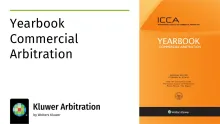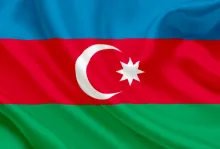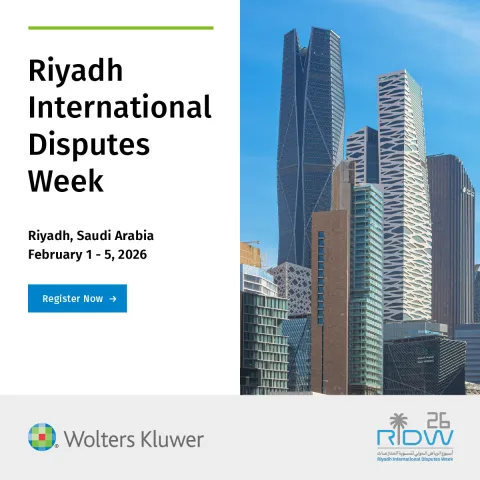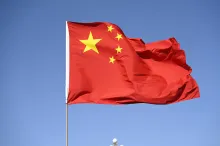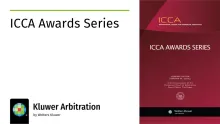The Lugovoy Law Metamorphosis: The Russian Constitutional Court Declined the Request but Partly Aligned With the Amicus Curiae Briefs
July 30, 2025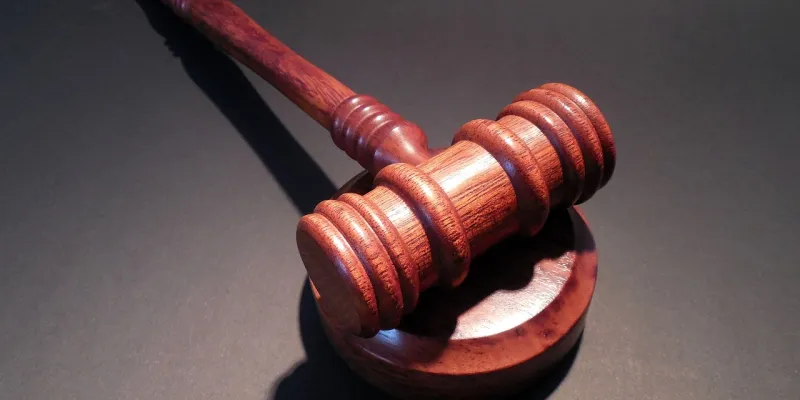
The Russian Constitutional Court in its ruling of 29 April 2025 No. 999-O refused to consider the constitutionality of Articles 248.1 and 248.2 of the Russian Arbitrazh Procedure Code (“APC RF”) (a.k.a. the Lugovoy Law, discussed previously here, here and here). These provisions allow the Russian courts to assert exclusive jurisdiction over disputes with sanctioned entities or related to sanctions and impose the anti-suit injunctions in defiance of otherwise valid dispute resolution clauses. Despite the refusal, the Russian Constitutional Court could have been positively affected by the two amicus curiae briefs submitted by Russian legal community.
Current Tendencies of the Lugovoy Law Application
Over the past three years, the application of the Lugovoy Law has grown increasingly hostile towards international arbitration. Originally, Article 248.1 required the party to prove that sanctions impeded its access to justice in the agreed forum. However, in 2022 the case law shifted this burden entirely. At present, Russian courts generally assume that Russian parties do not have access to justice abroad which relieves them of any burden of proof (see, e.g., case No. А40-214726/2023). A request to the Russian Constitutional Court could have been a chance to change the situation.
The Underlying Case of OWH v. VTB
A request to the Russian Constitutional Court must originate from a case pending or considered before Russian court. Accordingly, in the present situation, the request arose from the case of OWH v. VTB. On 7 December 2023, Arbitrazh Court of the City of Saint Petersburg and Leningrad Region ruled to award VTB EUR 112.6 million from OWH (subsidiary of VTB) under a settlement agreement related to ISDA transactions.
Before the final judgment, OWH requested that the claim be dismissed without consideration, as the parties had agreed to resolve their disputes by arbitration in accordance with the HKIAC Rules. The court rejected this argument, finding the arbitration clause unenforceable due to sanctions against VTB whose access to justice in Hong Kong is therefore impeded. The outcome was noteworthy because prior to this case the HKIAC was treated as a safe harbor for the battle of jurisdictions caused by anti-Russia sanctions.
The judgement, both on competence and merits, was upheld on appeal and cassation, and the Russian Supreme Court refused to review the case.
Anti-suit injunctions under Article 248.2 require a separate proceeding in Russia. Thus, in a related case, in which VTB Bank also participated, the court also granted an anti-suit injunction over OWH prohibiting to initiate or continue arbitration abroad and imposed a penalty of EUR 112.6 million to be paid in case of its violation. This decision was likewise upheld through all appellate stages.
After both cases had been considered by Russian courts, OWH submitted a complaint to the Russian Constitutional Court arguing that the application of the Lugovoy Law unjustifiably limits the access to arbitration in neutral jurisdictions, violating OWH’s constitutional rights.
The procedural rules of the Russian Constitutional Court do not formally provide for the possibility of filing of amicus curiae briefs. Nevertheless, due to the importance of the issue, the authors of the briefs expressed a strong interest in contributing their views on the Lugovoy Law within the context of international arbitration.
Amicus Curiae Brief of the Russian Arbitration Association
The Russian Arbitration Association (“RAA”) was established in 2013 as an independent association of law firms, lawyers, legal scholars engaged in the resolution of cross-border economic disputes. RAA was the first who submitted an amicus curiae brief in this case. Its purpose was to give the Russian Constitutional Court a perspective of “access to justice” and “impartiality” in the context of sanctions imposed against Russia. This move attracted attention of both Russian and international media, including the GAR.
Russian courts often take into account sanctions imposed in the seat of arbitration and the nationality of arbitrators if they come from “unfriendly countries.” RAA elaborated that these concerns are ungrounded in the context of Hong Kong. Neither China nor Hong Kong have introduced sanctions against Russia. Hong Kong maintains political neutrality and operates under a common law system with its own independent legal precedents. As for arbitrators, the RAA emphasized that impartiality is an individual characteristic of the arbitrator and not a feature of the legal system or arbitral institution. Under the HKIAC Rules, parties have the right to appoint arbitrators, and the HKIAC enforces strict standards of impartiality and mandatory disclosure. Therefore, arbitrators in HKIAC-administered disputes involving Russian parties often come from neutral jurisdictions (not designated as unfriendly). Russian arbitrators are also included in the HKIAC List of Arbitrators.
With respect to access to justice, the RAA amicus reminded that parties voluntarily opt for international arbitration and knowingly accept its practical challenges. This choice represents an exercise of constitutional rights, not a limitation of them. Surely, Russian courts often view visa restrictions and refusals of foreign legal counsel to represent Russian entities as barriers to justice. However, all of this does not apply to Hong Kong: Russian citizens may enter Hong Kong visa-free. Arbitration fees and other costs can be paid via Chinese banks with correspondent relationships to Russian banks. Parties may also retain legal counsel in Hong Kong who are not nationals of “unfriendly countries.”
Amicus Curiae Brief of the Task Force on the Application of the Lugovoy Law
Following the RAA amicus curiae brief, a group of lawyers, academics and employees of arbitration institutions (“Task Force”) submitted another amicus curiae brief. The Task Force was formed in 2024 due to the growing practice of broad application of the Lugovoy Law and attracted attention of the Russian media. This brief introduced the purposes of the Lugovoy Law, reminded about the Russian Supreme Court’s key decisions (e.g., in cases No. А60-36897/2020, А40-214726/2023), demonstrated the actual court practice with statistics. The brief also highlighted peculiarities of international arbitration with respect to impartiality, independence and access to justice. It offered ways to improve the application of the Lugovoy Law by narrowing it by, at least, excluding the arbitration centers located or proceedings seated in neutral jurisdictions.
The Task Force reminded about Uralvagonzavod v. PESA Bydgoszcz, a landmark case which established a rebuttable presumption that access to justice is impeded when sanctions are involved. All the subsequent case law has been broadening that presumption, essentially banning all arbitration proceedings with Russian parties abroad without any analysis of particular circumstances. For instance, the Lugovoy Law may be applied even to the disputes between two Russian companies that are not under personal sanctions.
The Task Force emphasized that the current interpretation undermines the constitutional principles of fairness, adversarial nature of proceedings and procedural equality. Foreign parties are effectively deprived of meaningful judicial protection, as their evidence or arguments are frequently given inadequate consideration or are disregarded altogether by the Russian courts. At the same time, Russian legislation unequivocally establishes the inalienable guarantee of judicial protection, which encompasses the equal rights of both parties in judicial proceedings, the obligation of each party to prove the circumstances on which it relies, and the duty of a court to objectively and impartially examine all arguments and evidence presented by the parties, without placing either party in a deliberately advantageous position.
Position of the Russian Constitutional Court
The Russian Constitutional Court refused considering constitutionality of the Lugovoy Law by issuing a comparatively short ruling of 29 April 2025 No. 999-O. Despite the refusal to consider the request, the ruling contains two important provisions.
First, the Court ruled that the Lugovoy Law does not imply automatic establishment of the exclusive competence of Russian courts or imposition of antisuit injunctions. Second, Russian courts should establish the subject matter and parties to the proceeding and conduct a comprehensive analysis of the circumstances of each particular case to ensure the guarantee of the constitutional rights of all the parties to these disputes – regardless of whether they are subject to sanctions or not (see the analysis of the ruling published by the GAR).
Conclusion
The two amicus curiae briefs were aimed at elucidating the correct meaning of the Lugovoy Law and ensuring its proper interpretation by the Russian courts, at least with respect to the HKIAC and Hong Kong as a seat, emphasizing that current application collide with such constitutional principles as access to justice, party equality, and courts’ impartiality. The Russian Constitutional Court declined to consider the case but expressed its attitude to the law and its current application that correlates with the approaches described in the amicus curiae briefs.
The authors of this post were actively involved in the preparation of both amicus curiae briefs.
You may also like
